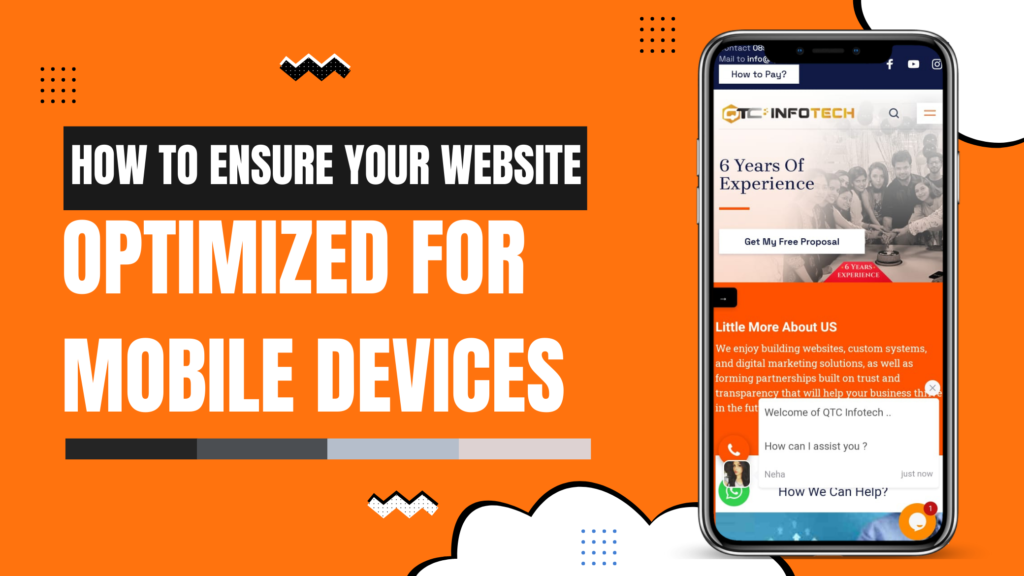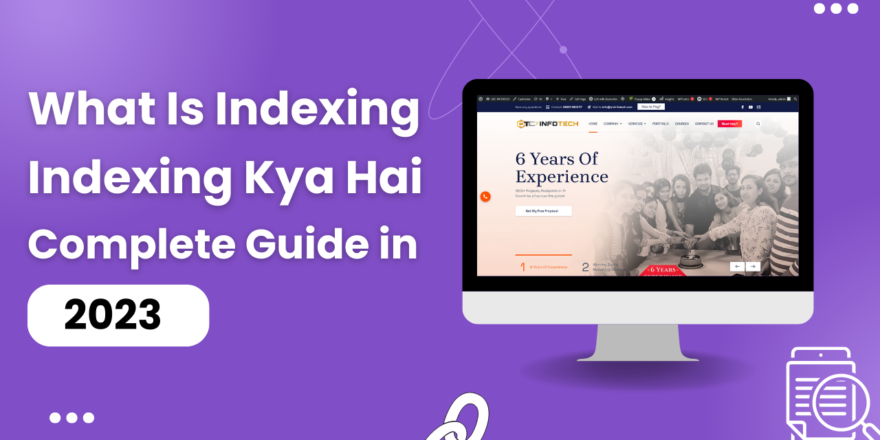
In today’s digital age, mobile devices have become an integral part of our daily lives. People use mobile devices for everything from communication and entertainment to shopping and business. In fact, more than half of all website traffic now comes from mobile devices, making it essential for businesses to ensure their websites are optimized for mobile devices. In this blog, we will explore the importance of mobile optimization for websites and how businesses can ensure their sites are optimized for mobile devices to provide a positive user experience.
Why Mobile Optimization is Important for Websites
Mobile optimization is the process of designing and developing a website to ensure it displays correctly on mobile devices, such as smartphones and tablets. Mobile optimization is essential for websites because:
Mobile devices are the most popular way to access the internet
As mentioned earlier, more than half of all website traffic now comes from mobile devices. If your website is not optimized for mobile devices, you risk losing a significant portion of your potential audience.
Improved user experience
When a website is optimized for mobile devices, it provides a better user experience. Mobile-optimized websites load faster, are easier to navigate, and are more user-friendly, which can lead to increased engagement, longer site visits, and more conversions.
Better search engine rankings
Search engines like Google give preference to mobile-optimized websites, meaning they are more likely to appear at the top of search results when users search for related keywords. This is because search engines want to provide their users with the best possible user experience, and mobile optimization is a key factor in achieving that.

How to Ensure Your Website is Optimized for Mobile Devices
Use a responsive design
A responsive design is a website design that adjusts automatically to the screen size of the device it is being viewed on. This means that the website will display correctly on any device, whether it is a desktop computer, a tablet, or a smartphone. Using a responsive design is the best way to ensure your website is optimized for mobile devices.
Optimize images
Images are an essential part of any website, but they can also slow down the website’s loading speed, particularly on mobile devices. To ensure your website loads quickly on mobile devices, you should optimize your images by compressing them, reducing their file size, and using the correct file format.
Use a mobile-friendly font
The font you use on your website can also have an impact on the user experience, particularly on mobile devices. Fonts that are too small or difficult to read can make it challenging for users to navigate your website. Therefore, it’s important to use a mobile-friendly font that is easy to read on smaller screens.
Simplify navigation
Navigation is essential on any website, but it becomes even more critical on mobile devices, where screen space is limited. To ensure your website is optimized for mobile devices, you should simplify your navigation by reducing the number of menu items and using clear and concise labels.
Test your website on multiple devices
To ensure your website is optimized for all mobile devices, it’s important to test it on multiple devices, including different models of smartphones and tablets. This will help you identify any issues with the website’s design or functionality and make the necessary changes to improve the user experience.
Minimize page loading time
Mobile users expect fast loading times, and slow-loading websites can negatively impact the user experience. To optimize your website for mobile devices, you should minimize page loading times by reducing the size of your website’s files, including images and videos. You can also use caching techniques and compression to speed up page loading times.
Optimize for touch
Mobile devices are typically touchscreen devices, and users interact with websites using their fingers. To optimize your website for mobile devices, you should ensure that it is touch-friendly. This means ensuring that buttons and links are large enough to be easily tapped and that users can scroll through your website with ease.
Use mobile-friendly forms
Forms are a crucial part of many websites, but they can be challenging to use on mobile devices if they are not optimized correctly. To ensure your website is optimized for mobile devices, you should use mobile-friendly forms that are easy to fill out on smaller screens. This means using clear labels, larger fields, and minimizing the number of required fields.
Use mobile-friendly content
When optimizing your website for mobile devices, it’s important to consider the type of content you are displaying. Mobile users typically have less screen space available to them, so you should prioritize your most important content and use shorter paragraphs and sentences. You should also avoid using large blocks of text and instead use bullet points or lists to make your content more scannable.
Continuously monitor and optimize
Mobile devices and technology are constantly evolving, which means that your website needs to be continuously monitored and optimized to ensure it remains optimized for mobile devices. This means regularly testing your website on new devices, keeping up with the latest trends and best practices, and making the necessary changes to improve the user experience.
Conclusion
In summary, mobile optimization is crucial for any website that wants to provide a positive user experience and achieve better search engine rankings. By using a responsive design, optimizing images, simplifying navigation, minimizing page loading times, optimizing for touch, using mobile-friendly forms and content, and continuously monitoring and optimizing, you can ensure your website is optimized for mobile devices and provide your users with the best possible experience.
FAQ:
What are the benefits of website optimization?
First, website optimization can enhance consumer satisfaction. Users will have a better experience on your site if you make it faster and more effective. Higher engagement, extended page views, and finally more conversions can result from this. Furthermore, website optimization helps boost your site’s ranking in search results. Page speed is a ranking factor that Google and other search engines evaluate, so boosting your website can improve your position in search results. It may also result in more organic traffic and visibility for your company.
What happens when you optimize a website?
A large variety of methods are used in website optimization to improve a website’s usability, performance, and user experience. Technical strategies including improving page load times, simplifying code and pictures, and applying structured data markup may be used in these strategies. Website optimization generally includes image optimization, which includes making ensure that webpage content is wonderful, informative, and relevant for the target audience.
Why should you optimize your website for mobile?
He was looking for a new restaurant to try in my city last year. On my laptop, I noticed one that seemed fantastic, so I chose to check out their website on my phone to learn more about their location and menu. I was shocked to see that this website was taking an extremely long time to load and it was not a mobile-friendly website. this website’s photos were very big, the writing was too small, and the buttons were too near combined.












